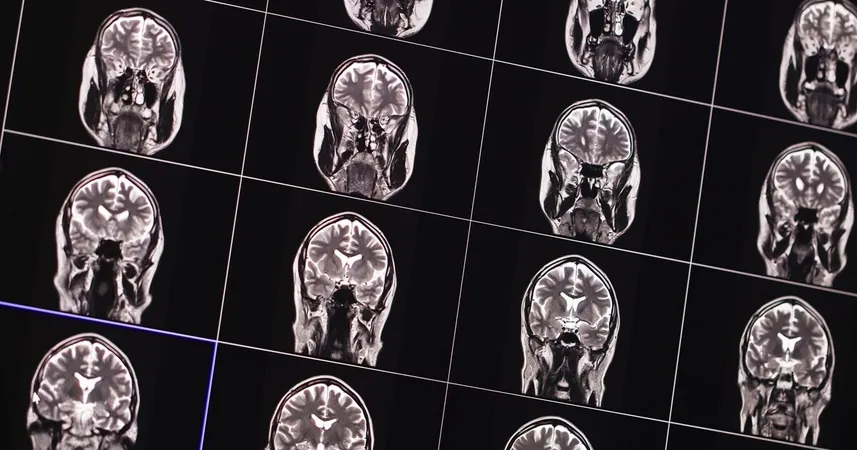
Breaking News: Scientists Unveil Potential Breakthrough in Alzheimer's Research!
2024-12-29
Author: Li
Groundbreaking Study Unveils Critical Mechanism in Alzheimer's Progression
In a groundbreaking study that could change the future of Alzheimer's treatment, scientists have uncovered a critical cellular mechanism responsible for the progression of this devastating neurodegenerative disease. A research team at the Advanced Science Research Center at The City University of New York (CUNY ASRC) has identified a significant correlation between cellular stress in the brain and the advancement of dementia, offering new hope to millions affected by this condition.
Research Highlights Published in Neuron
Published in the prestigious journal Neuron, the researchers suggest that their discoveries may pave the way for innovative medicinal interventions capable of slowing down or even reversing the effects of Alzheimer's. Central to this research are microglia—often dubbed the brain's immune cells. These tiny fighters play a dual role in the development of Alzheimer’s: while some microglia help protect the brain, others contribute to the escalation of neurodegeneration.
Understanding Microglial Roles
Lead researcher Professor Pinar Ayata emphasized the importance of understanding the different roles microglial populations play in the disease. The team found that when a specific stress pathway, known as the integrated stress response (ISR), is activated, it triggers microglia to produce harmful lipids that damage essential brain cells, including neurons and oligodendrocyte progenitor cells.
Obstructing Stress Response Reverses Symptoms
In a remarkable finding, the study showed that obstructing this stress response or the synthesis pathway for these toxic lipids led to a reversal of Alzheimer’s symptoms in preclinical models. Additionally, electron microscopy revealed the presence of 'dark microglia' in postmortem brain tissues from Alzheimer's patients. These stressed microglia were found in double the concentration compared to those in healthy individuals of the same age.
Significance of the Findings
Co-lead author Anna Flury articulated the gravity of these results, stating, 'These findings reveal a critical link between cellular stress and the neurotoxic effects of microglia in Alzheimer's disease.'
Future Implications
As researchers continue to decode the complexities of Alzheimer’s, their findings not only illuminate the role of microglia but also offer a beacon of hope for potential future therapies that target these cellular mechanisms. With over 55 million people living with dementia worldwide, advancements like these could revolutionize how we approach treatment for this heartbreaking illness. Stay tuned for updates as this story unfolds!
 Brasil (PT)
Brasil (PT)
 Canada (EN)
Canada (EN)
 Chile (ES)
Chile (ES)
 Česko (CS)
Česko (CS)
 대한민국 (KO)
대한민국 (KO)
 España (ES)
España (ES)
 France (FR)
France (FR)
 Hong Kong (EN)
Hong Kong (EN)
 Italia (IT)
Italia (IT)
 日本 (JA)
日本 (JA)
 Magyarország (HU)
Magyarország (HU)
 Norge (NO)
Norge (NO)
 Polska (PL)
Polska (PL)
 Schweiz (DE)
Schweiz (DE)
 Singapore (EN)
Singapore (EN)
 Sverige (SV)
Sverige (SV)
 Suomi (FI)
Suomi (FI)
 Türkiye (TR)
Türkiye (TR)
 الإمارات العربية المتحدة (AR)
الإمارات العربية المتحدة (AR)